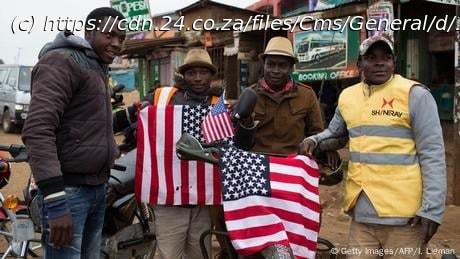The US hasn’t made Africa a top diplomatic priority. It has lagged with investment and trade, and used the region as a battleground for power struggles with China and Russia.
The US hasn’t made Africa a top diplomatic priority. It has lagged with investment and trade, and used the region as a battleground for power struggles with China and Russia.
Both Kamala Harris and Donald Trump are following a trend in the US presidential election well-known by Africans, with neither candidate making US-Africa relations a major election issue.
Neither Trump nor outgoing US President Joe Biden paid much attention to Africa during their presidencies — and neither of them visited the continent while in office, though Biden still plans to visit Angola in early December. Cameron Hudson from the Center for Strategic and International Studies, a Washington-based think tank, told DW that both Democrats and Republicans have pursued an Africa program that « doesn’t differ much one from the other. Africa doesn’t rank very highly in the list of US priorities. »
Both administrations acknowledged Africa’s importance, said Hudson, but only to a certain degree. « It is the largest voting bloc at the United Nations, and when we cannot organize the Africans to vote in line with [the US], that undermines US interests and US prestige in the world », he added, noting that economic interests, such as access to Africa’s precious minerals, also play a role.
Pushing China off its pedestal has been a great motivation for the US, said Hudson.
« Efforts by China to establish military bases or to obtain a monopoly over certain mineral resources in Africa will be seen as something that needs to be responded to very aggressively by whoever is in the White House », said Hudson.
« And I think that will drive many of our policies in Africa. » Though the US remains Africa’s largest aid donor, China is the continent’s largest trading partner, with bilateral trade surpassing $166.






